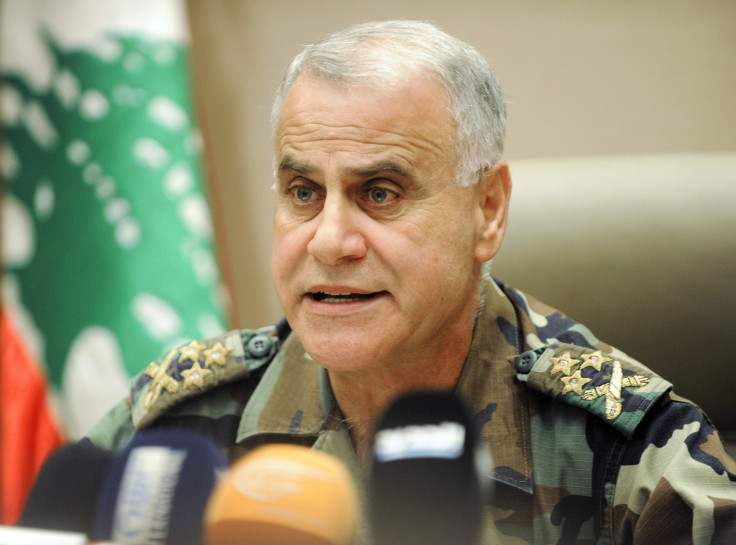Islamic State Seeks To Conquer Lebanon, Lebanese Military Chief Says

A Lebanese border town was seized by Islamic State militants this month with intentions of pulling the country into an Iraq-like sectarian war between Sunnis and Shiites that threatens to destroy the nation, the Lebanese Chief of Armed Forces said, according to a Reuters report.
General Jean Kahwaji said that Sunni fighters of the Islamic State, which controls vast territories in Syria and Iraq, poses a “great threat” to Lebanon, which itself suffered a long civil-war from 1975 to 1990, and has felt the effects of the conflict in neighboring Syria. In a battle with Islamic State fighters in the border town of Arsal, the Lebanese army reportedly lost 37 of its soldiers who were either captured or killed.
"The army hit them and continues to, smashing their plan, but this does not mean that the story is over," he said adding: "They might think of another plan and try another time to cause Sunni-Shi'ite strife,” Kahwaji said.
The Islamic State's attack on Aug. 2 marked the most serious incident in Lebanon since the Syrian civil war began three years ago, as well as the first time a foreign invader has seized Lebanese territory since the time Israel invaded south Lebanon during its war with Hezbollah in 2006.
During the five-day battle in Arsal, the Lebanese army killed dozens of Islamist militants, according to army estimates, resulting in the militants retreating into the mountainous border zone last Thursday, along with 19 captured Lebanese soldiers.
Dressed in military fatigues at the press meeting, 60-year old Kahwaji said that the aim of the Islamists was to turn Arsal, a Sunni Muslim town into a base within Lebanon from where the Islamic State could launch attacks into surrounding Shiite villages and incite a sectarian battle that could destroy the country, which is home to Shias, Sunnis and Christians.
"The strife in Iraq would have moved to Lebanon - 100 percent," said Kahwaji, a Maronite Christian, adding that his assessment was based on the confessions of an Islamist commander whose arrest on Aug. 2 was the trigger for the Arsal battle. Emad Gomaa, the Islamist commander, was reportedly “fine tuning” the plan at the time he was captured.
A former supplier of dairy products, 30-year-old Gomaa, was a member of the Nusra Front, an al Qaida affiliate, but had recently crossed over to the Islamic State. His confession reportedly led to the discovery and arrest of numerous militant cells all across Lebanon, leading Kahwaji to ask: “Would there have remained a state? It is a battle for the survival of the Lebanese entity."
Peace between Lebanese Shiites and Sunnis is at stake, amplified by the conflict in the region, with powerful Shiite group Hezbollah fighting alongside President Bashar Assad’s forces in Syria. Lebanese Sunni Muslims have largely supported the insurgent uprising against Assad who belongs to the Alawite community within Shiite Islam. An estimated 1.6 million Syrians, mostly Sunnis, have now fled to Lebanon.
Despite possessing a more powerful arsenal than the Lebanese army, Hezbollah stayed out of the Arsal battle in Lebanon due to fears that it would incite a wider sectarian conflict in the country, which has already been hit by suicide bombings and rocket attacks as the war next door in Syria spills over.
"If the world and the people give up, then the black flag will arrive in Lebanon. But the people are with the army and they won't let them arrive," Kahwaji said.
© Copyright IBTimes 2024. All rights reserved.











